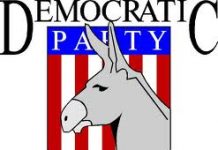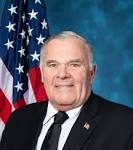By Jacob Rund TheStatehouseFile.com
INDIANAPOLIS – The Indiana Department of Transportation will launch an expansive study seeking new ways to finance road construction and maintenance if a bill passed by the Indiana legislature is signed into law.
House Bill 1104, authored by Rep. Ed Soliday, R-Valparaiso, authorizes INDOT to contract with a third party to study methods that could be used to fund the state’s infrastructure.
The bill comes as revenue from Indiana’s gasoline tax has stagnated or fallen, in part because the increased fuel economy of most modern vehicles means Hoosiers are buying less gas. That’s raised concerns among lawmakers that the state might not have the cash it needs in the future to keep up with road construction.
Federal officials are facing similar questions.
“Infrastructure across America is falling apart,†Soliday said. “The gas tax and the diesel fuel tax is a fixed number. It hasn’t been raised for years. Inflation is eating away at that money.â€
Although the gas tax has consistently been relied on to fund the state’s road projects, the tax is set at a fixed rate – one that hasn’t increased since 2003 – and does not account for inflation. That means that the amount of money generated by the tax and available to use on statewide transportation continues to decline.
“We think the study is extremely important because the sources of fuel for various types of vehicles is changing and our current funding system hasn’t kept up with that,†said Kevin Brinegar, president of the Indiana Chamber of Commerce. “Solving and addressing this challenge is a high priority for us.â€
Dennis Faulkenberg, a transportation consultant and noted expert, refers to the gas tax as “bread and butter funding†and pointed to the use of the funds for non-highway expenditures as a partial reason for the state’s dilemma.
Faulkenberg also said he hopes the study will find new ways of addressing the funding situation.
“Hopefully the study might bring some things forth that we might see that we don’t know of today,†he said.
Comparatively, the price Hoosiers pay for the upkeep and maintenance of their state’s roads and highways is relatively low. Soliday said the average person, driving about 12,000 miles per year, pays roughly $100 a month in gas tax. He related the cost to a monthly cell phone or cable television payment.
“Which contributes more to our economy?†Soliday said. “The roads or cable TV?â€
Among the options expected to be explored are a “miles traveled tax†and an additional fee for owners of electric and hybrid vehicles. The miles traveled tax – which other states are currently exploring – would track the number of miles traveled by a particular vehicle and use the information to calculate a tax rate.
That option has become a controversial alternative elsewhere because the tracking devices have raised privacy concerns. Faulkenberg said the study might look at how the tax could be implemented while still addressing that issue.
The miles traveled tax has also received criticism for the cost of collecting the information from the sensors on each vehicle.
“From studies I’ve seen, the cost of collection for that are about 16 times the cost of collection for the fuel tax,†Soliday said.
Soliday said those costs and the overall amount the program might raise are key metrics when considering any potential road-funding alternative.
“I want to know what the costs of collection are,†he said. “I want to know what it will raise and what it will cost to raise it.â€
Under the bill, the study, conducted by INDOT and a contracted third party, must not last longer than two years and will include an inventory of Indiana’s transportation infrastructure.
INDOT declined to discuss the details of the study until Gov. Mike Pence signs HB 1104 into law. But officials released a statement expressing their support for the bill.
“INDOT supports House Bill 1104,†the statement said. “But it would be premature and speculative for us to discuss the bill until it is signed into law by the governor.â€
Jacob Rund is a reporter for TheStatehouseFile.com, a news website powered by Franklin College journalism students.Â






Mainland USA needs a “value added” tax applied to all commerce that travels our infrastructure that came outside our nations borders. It was produced without any taxes going into out government coffers and it is travelling duty free.
Hmmm, interesting idea.
“Infrastructure across America is falling apart,Soliday said”
No kidding,got a plan to fix it,as well?
We do.
Adjustment for Climate change,the sustainability for balanced infrastructures evolves with it. 😉
“confractum memoria”
“broken recording”
Since people buying more fuel efficient vehicles are actually doing their country a service and people who around the world who don’t like us a disservice, why penalize them?
Why not tax (for the first time) insurance settlements of 1 million mulas or more a one percent tax dedicated to our infrastructure only?
1% of a million is ten thousand dollars.
You think the dead are going to miss it?
The TPer’s would rather drive off the end of a dilapidated bridge rather raise a dime of extra taxes from the “job creators”. That would be commie pinko socialism. Unless of course a white male republican becomes president.
Why insurance settlements? How about every cargo box that gets off loaded at the ports? The semi trailers that cross inside to our boarders, Cargo that arrives by plane.
How about those that earn a million or more per year.
Business that make a million before any cost deductions. A real estate transaction that equals a million or more.
List is endless!
One last one. Eliminate the Excise deductions on the yearly plates that has been going on for the last 20 years, thanks to the lottery! Add that money to repair our roadways.
Thought of another one.
Follow your man Mitch led and start selling off all of our roadways to foreign investors!
What your describing sounds like a tariff.
Unbalance trade is causing the wealth to flow out of this country. Did we have these issues when we were had equal trade? One must look back 40-50 years and look at the “whole” picture compare to now. Don’t look at it as how this benefit just you or me, but the neighbors, community, ect.
I see us as a huge tree. Back then, a huge prosperous producing growing living tree where everything about it was alive.
80’s early 90’s are branches were cut back to produce more fruit instantly, not concerned what it would do to that tree in the future.
Past 25 years our ever growing “unbalance” trade
has cut many of the roots that had supported that
once prosperous tree. Only certain parts of the tree is surviving at the cost of the rest.
How long will this tree last in this condition?
I was under the impression that the taxes we paid were supposed to go to fixing infrastructure in the country. You know the basic things that the government is supposed to be there for: Infrastructure, military, police and fire.
Let’s stop sending billions of dollars to foreign countries whose citizens wouldn’t piss on us if we were on fire. Take all that money we already pay in taxes and put towards rebuilding crumbling roads, bridges, sewer systems, water systems etc…
Then we could cut the government’s size back to a reasonable size and quit paying for all the bloated bureaucracy (repetitive jobs, under worked but overpaid workers, ridiculous benefits etc…)
The road industry is back at the statehouse with their hands stretched out wanting more and more. It’s a never ending cycle. The answer needs to be short and sweet- NO!
Comments are closed.